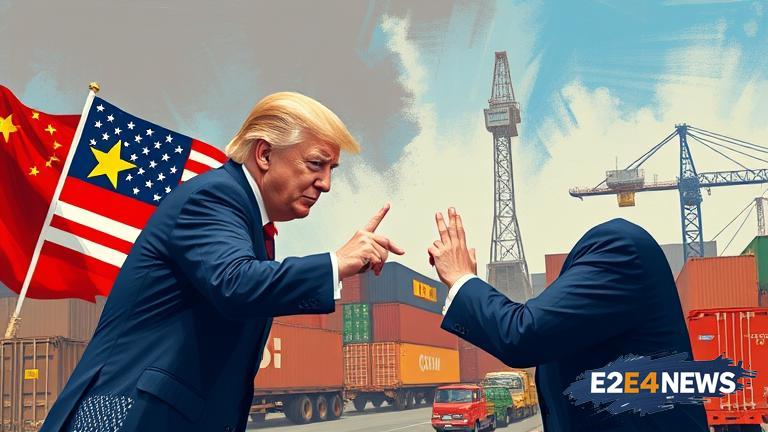The ongoing trade tensions between the United States and China have reached a boiling point, with former President Donald Trump threatening to impose a staggering 200% tariff on critical magnet supplies from China. This move has sent shockwaves throughout the global economy, with many experts warning of severe consequences for international trade and commerce. The magnets in question are a crucial component in the production of various high-tech products, including smartphones, laptops, and electric vehicles. China is currently the world’s largest supplier of these magnets, accounting for over 90% of global production. Trump’s tariff threat has been seen as a negotiating tactic to pressure China into making concessions on trade. However, Beijing has remained defiant, with Chinese officials vowing to retaliate against any US trade restrictions. The US-China trade war has been ongoing for several years, with both countries imposing tariffs on each other’s goods. The conflict has resulted in significant economic losses for both nations, with the US trade deficit with China reaching record highs. The proposed tariff on magnet supplies is the latest salvo in this trade war, and it remains to be seen how China will respond. The global economy is holding its breath as the situation continues to unfold, with many businesses and investors bracing for the worst. The US has long accused China of unfair trade practices, including intellectual property theft and forced technology transfer. China, on the other hand, has accused the US of protectionism and bullying. The trade tensions between the two nations have also had a significant impact on other countries, with many economies feeling the effects of the conflict. The European Union, in particular, has been caught in the middle of the trade war, with many of its member states relying heavily on trade with both the US and China. As the situation continues to escalate, there are growing concerns over the potential for a global economic downturn. The International Monetary Fund (IMF) has warned that the trade war could have severe consequences for global economic growth, with some estimates suggesting that it could reduce global GDP by as much as 1%. The US-China trade war has also had a significant impact on the global stock market, with many investors becoming increasingly risk-averse. The situation remains fluid, with many experts predicting that the trade war will continue to escalate in the coming months. Despite this, there are still hopes that a resolution can be reached, with some officials suggesting that a trade deal could be imminent. However, until then, the global economy will remain on high alert, waiting to see how the situation unfolds. The US and China have a long and complex history of trade relations, with the two nations having been major trading partners for decades. However, in recent years, the relationship has become increasingly strained, with both countries accusing each other of unfair trade practices. The trade war has also had a significant impact on US politics, with many politicians calling for tougher action against China. The situation remains a major concern for businesses and investors around the world, with many waiting to see how the situation will unfold. As the trade war continues to escalate, there are growing concerns over the potential for a global economic downturn, with many experts warning of severe consequences for international trade and commerce.
